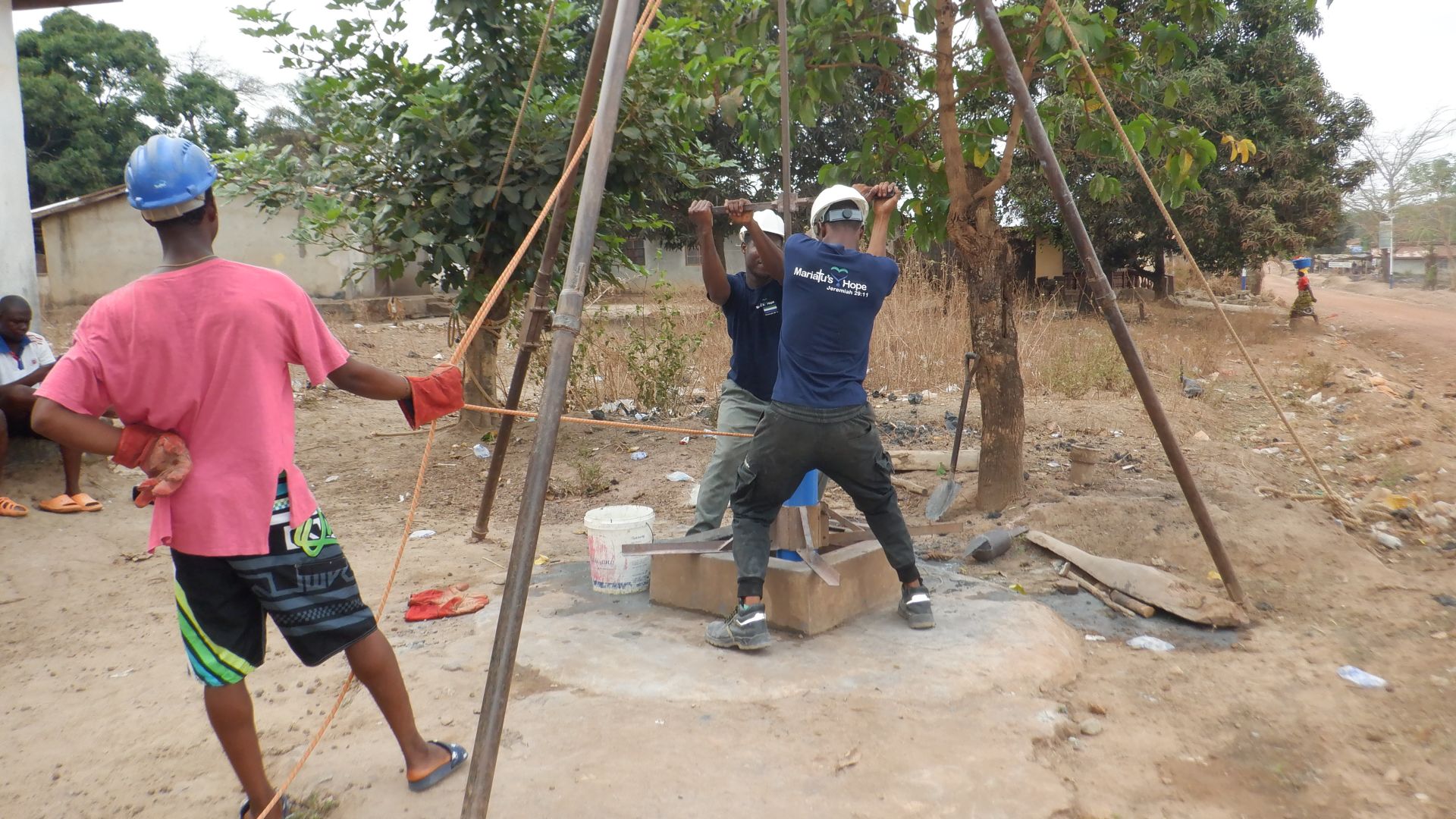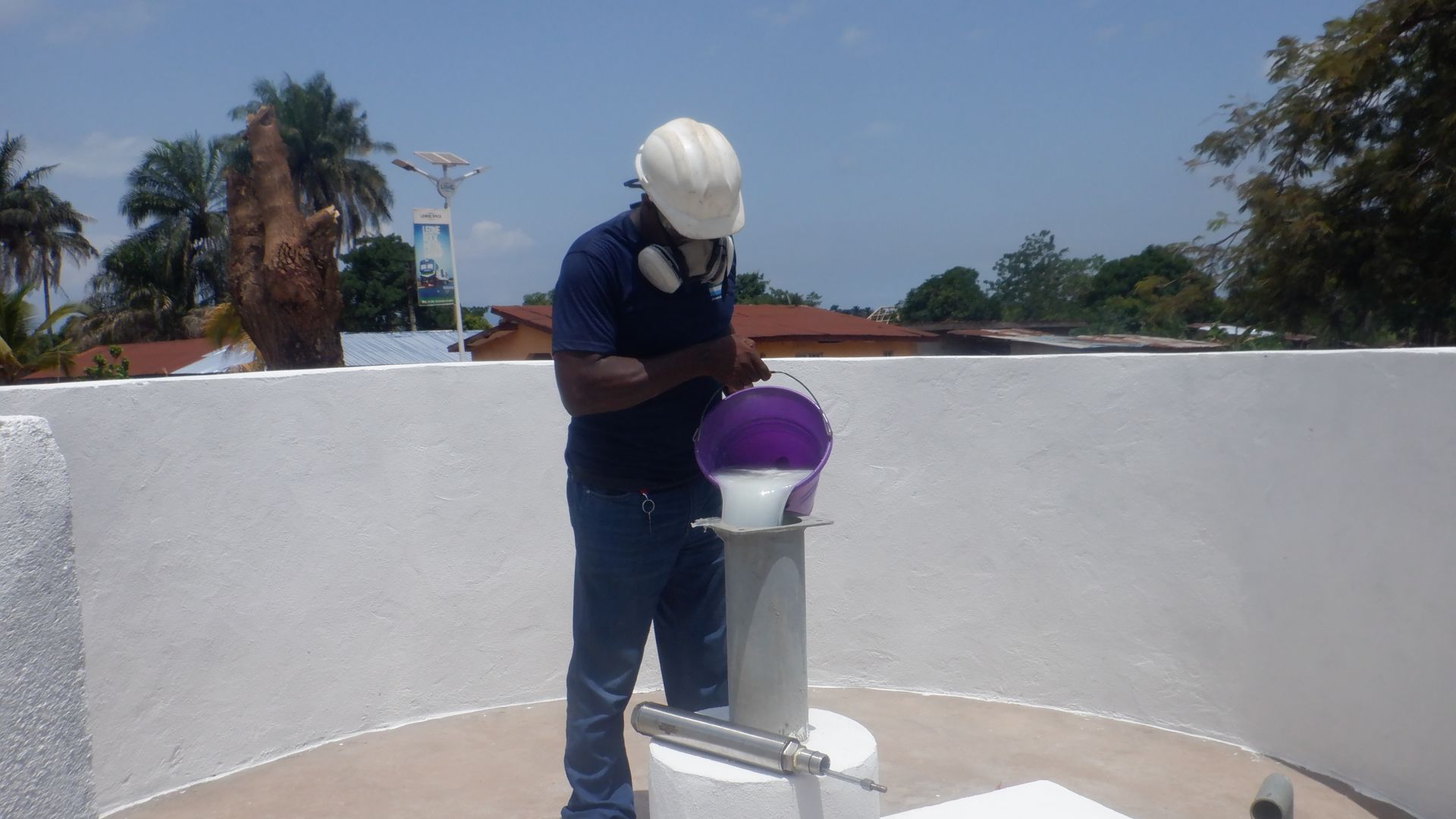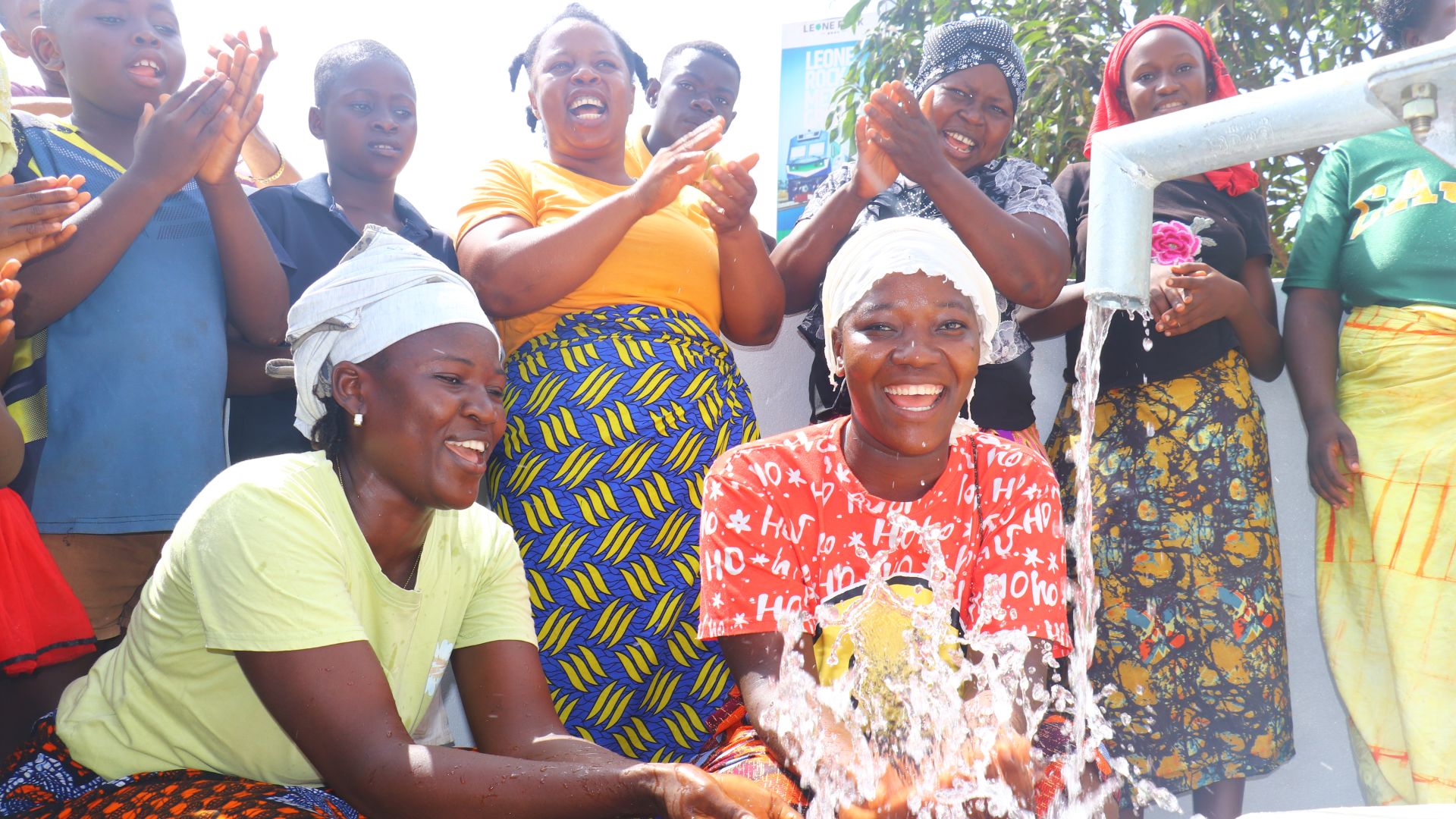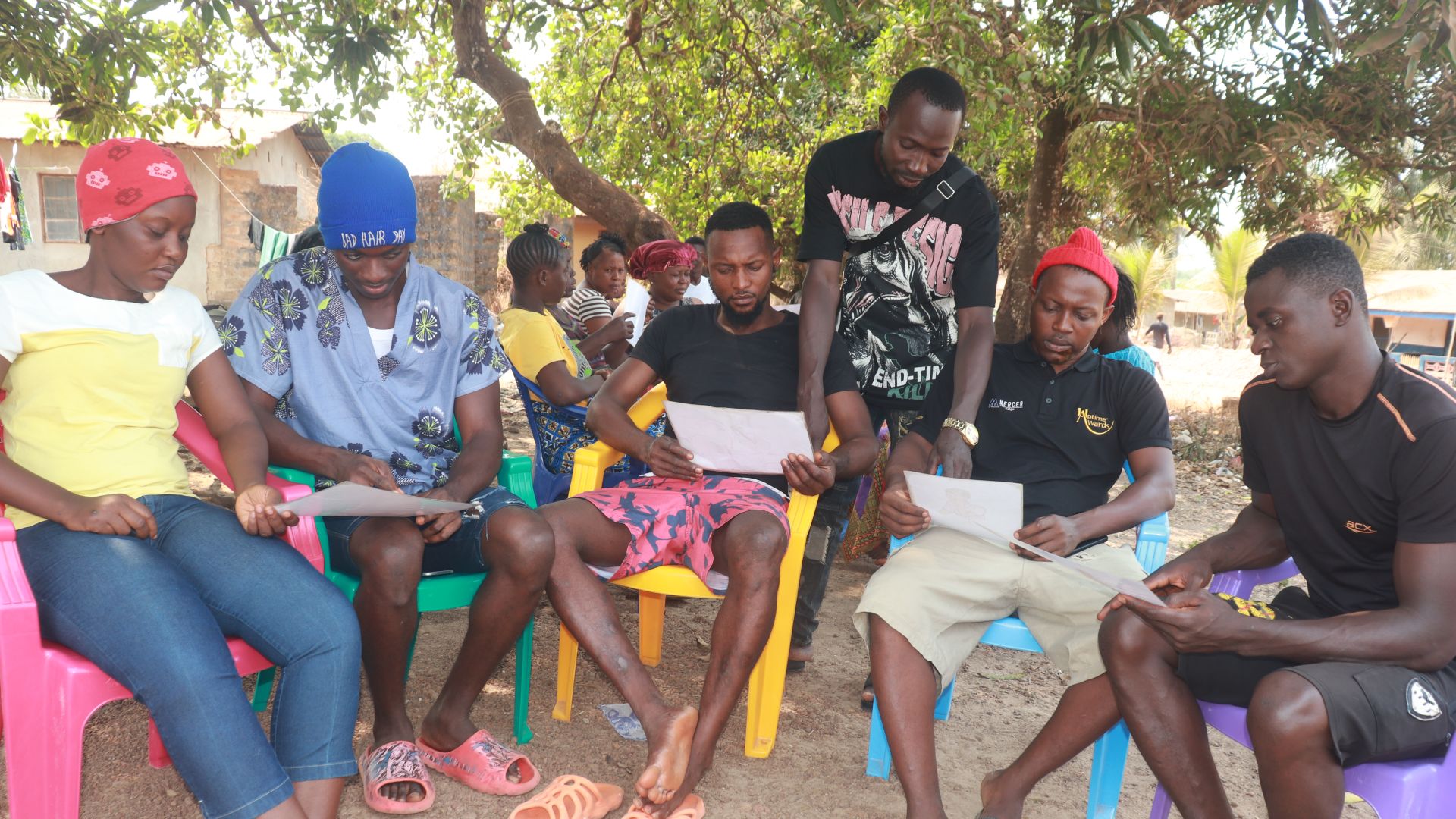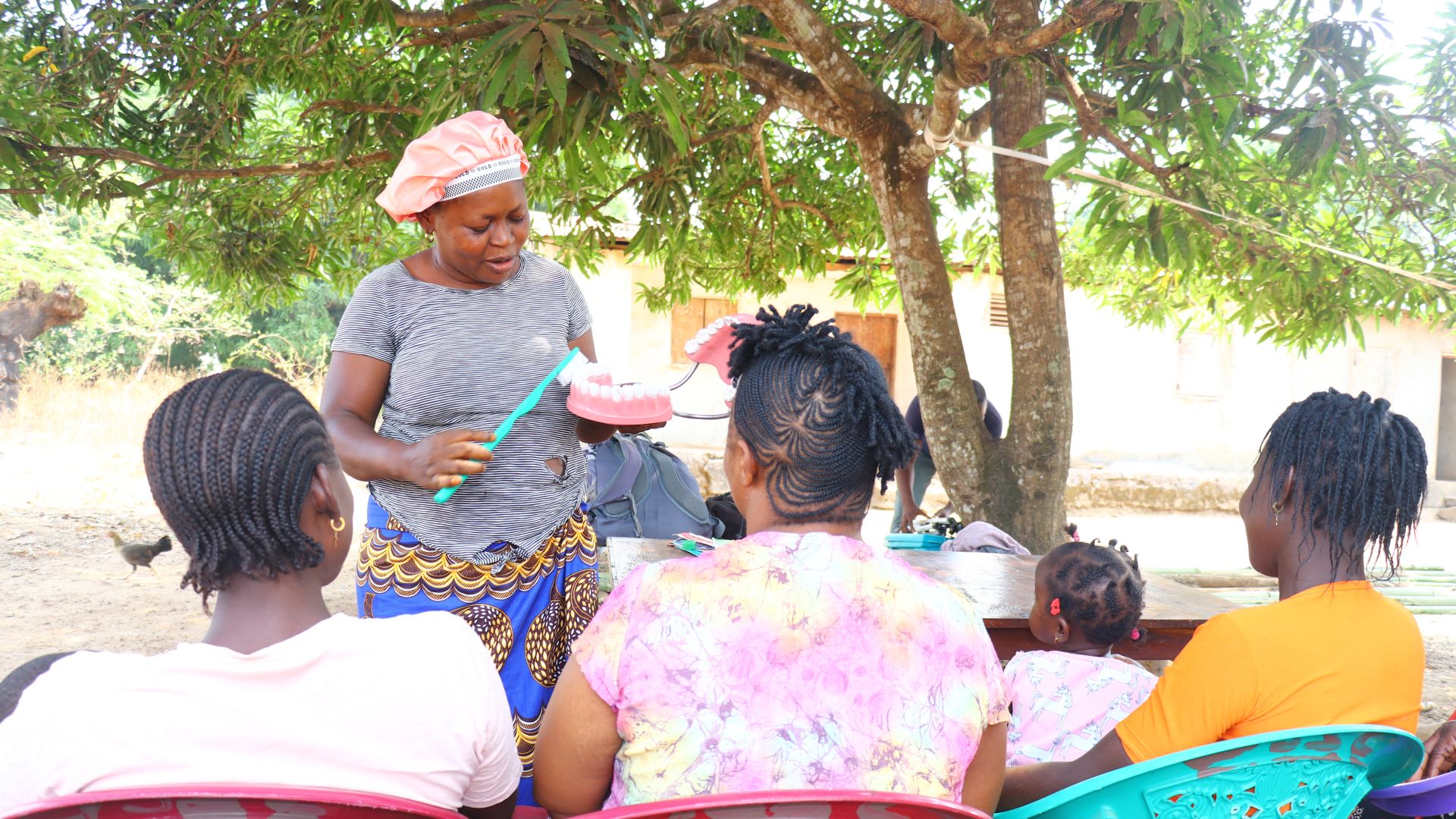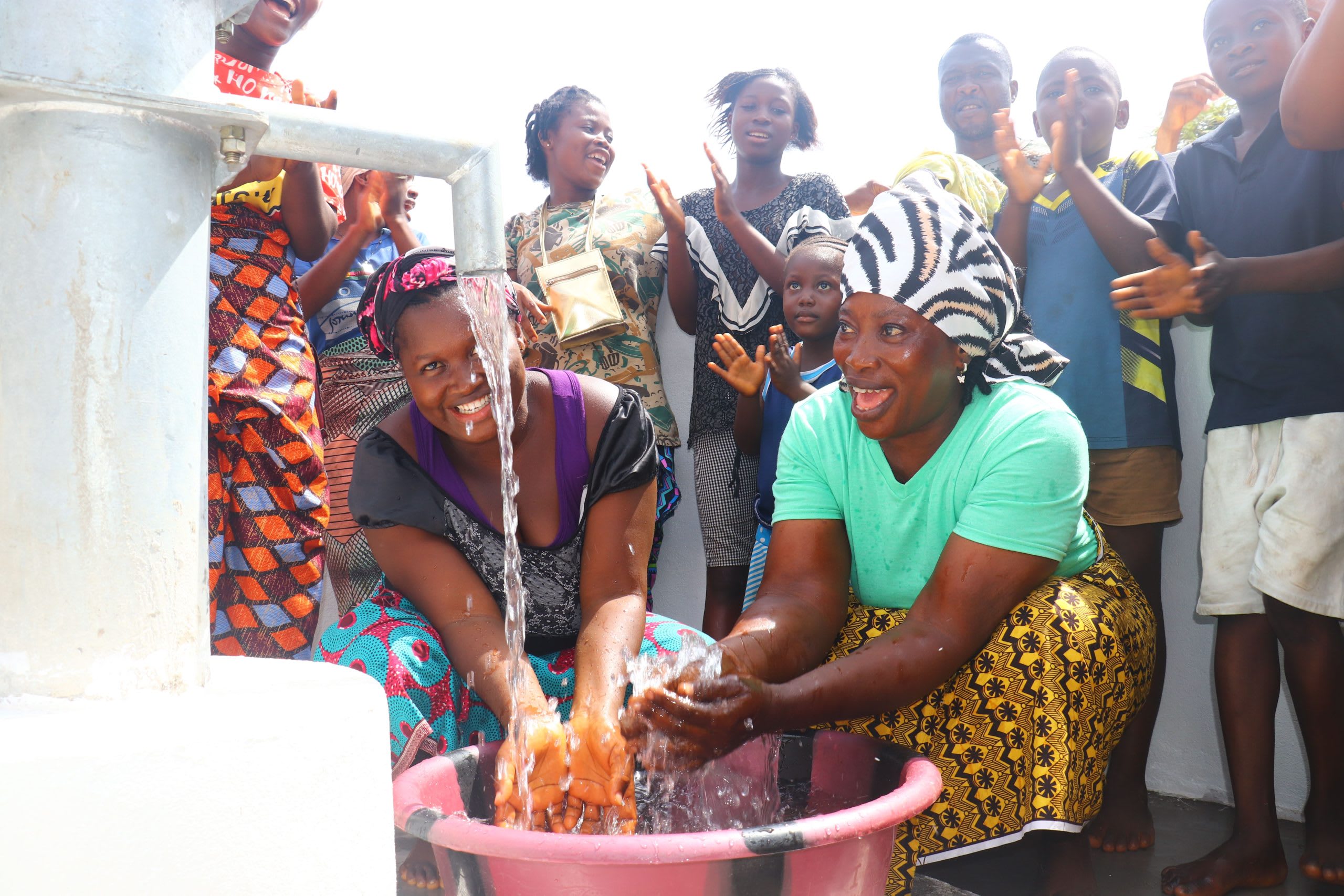The 224 people living in this area of the Pepel Community do not have a reliable, safe water source to meet their daily needs. Their primary water source, an unprotected dug well, is seasonal, so people must scramble to find water elsewhere when it runs dry or has limited water available.

The main well suffers from seasonality.
Most often, that means community members cross a busy road to collect water from a further away alternative well. Although this well provides sufficient water, community members have reported suffering from water-related illnesses due to drinking the water.

Moses collects water from the alternative well.
"I feel discouraged each time I am sent to fetch water because of the constraints I face. It is not easy to fetch water in this community, especially during the dry season. This is because our main source is seasonal. The situation forces me to fetch water from the well across the street. Fetching water here is difficult. I must use force for me to draw water from the well. Sometimes, the rope will fall inside the well. All this makes me delay fetching water. Also, I find it difficult to cross the street after fetching water because of the bikes and vehicles that are using this road. Sometimes, I will wait for some time for me to be able to cross. All these situations make me sad each time my parents send me to fetch water," said 16-year-old Moses.

Moses carrying water.
Collecting sufficient water for himself and his family is a daily burden for Moses, leaving him with little energy or time for anything else.
"Fetching water takes most of my time, especially in the morning and evening hours. In the morning, I must fetch enough water that my parents [who] will use [it] till I return from school. It takes more than an hour for this to be done, especially during the dry season when the demand for water is high. By the time I am through fetching water, I will already be late for school," continued Moses.
"After school, I must hurry up and go home so that I [can] continue to fetch water for my mum to prepare the evening’s meal. I will be tired and hungry, mostly when there is no food at home to eat. I spend most of my time in the evening fetching water for my parents. This makes me not have [the] energy to study my notes at night. All this has affected my performance in school exams," continued Moses.

Moses, with other community members, going to collect water.
Moses has dreams of a brighter future as an accountant, but until he has access to sufficient, safe water fulfilling his dreams will be impossible.
Steps Toward a Solution
Our technical experts worked with the local community to identify the most effective solution to their water crisis. They decided to drill a borehole well, construct a platform for the well, and attach a hand pump.
Well
Abundant water often lies just beneath our feet. Aquifers—natural underground rivers—flow through layers of sediment and rock, offering a constant supply of safe water. A borehole well is drilled deep into the earth to access this naturally filtered and protected water. We penetrate meters, sometimes even hundreds of meters, of soil, silt, rock, and more to reach the water underground. Once found, we construct a platform for the well and attach a hand pump. The community gains a safe, enclosed water source capable of providing approximately five gallons of water per minute. Learn more here!
Community Education & Ownership
Hygiene and sanitation training are integral to our water projects. Training is tailored to each community's specific needs and includes key topics such as proper water handling, improved hygiene practices, disease transmission prevention, and care of the new water point. Safe water and improved hygiene habits foster a healthier future for everyone in the community. Encouraged and supported by the guidance of our team, a water user committee representative of the community's diverse members assumes responsibility for maintaining the water point, often gathering fees to ensure its upkeep.


















